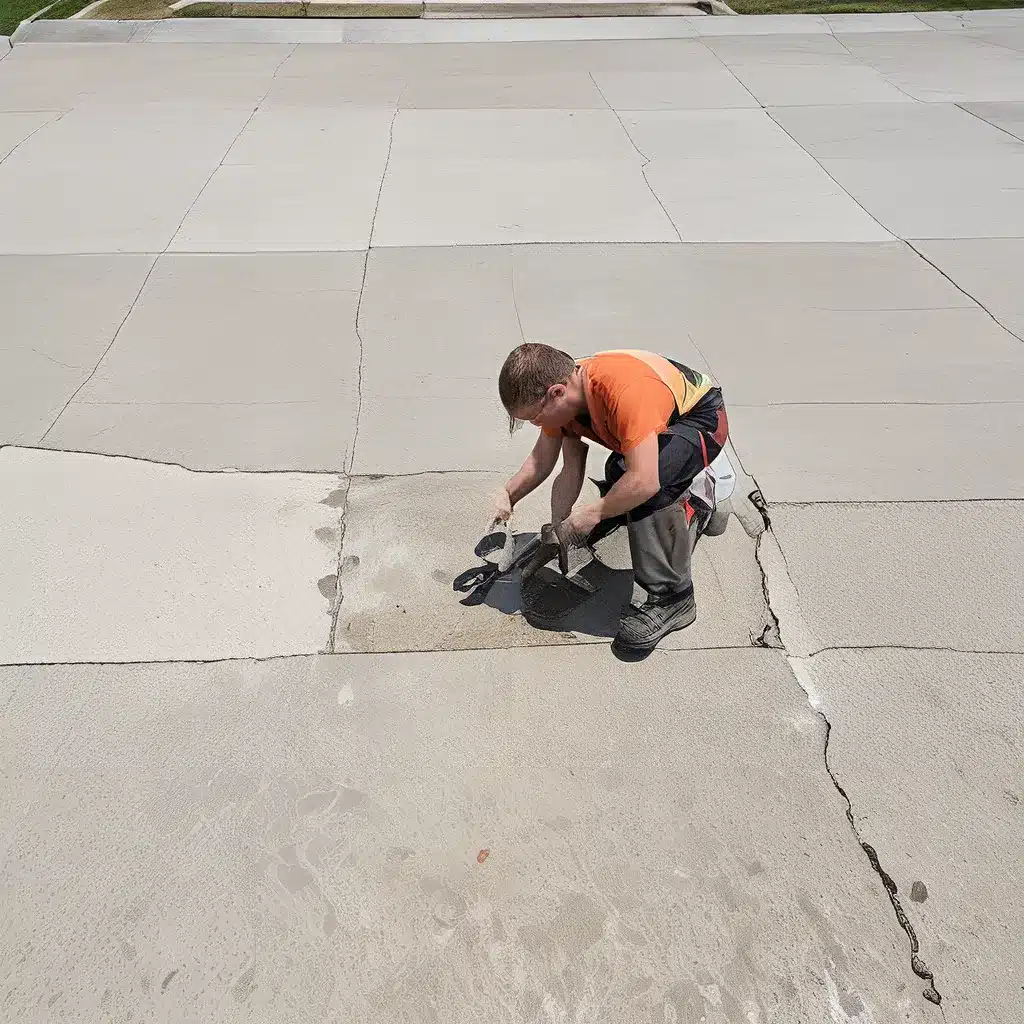
Ensuring Durable and Sustainable Concrete Structures in Kansas City
Concrete is the backbone of construction in Kansas City, serving as the foundation for roads, buildings, and various other infrastructure. As a robust and versatile material, concrete offers unparalleled strength and longevity. However, its durability can be significantly influenced by the region’s weather conditions, making it imperative for professional concrete contractors to understand how to effectively manage these effects during concrete paving, maintenance, and repair.
In this comprehensive guide, we will explore the impact of weather on concrete in the Kansas City area, discuss best practices for paving and maintaining concrete in different climates, and offer practical tips for repairing weather-damaged concrete to extend the lifespan of your concrete structures.
Understanding the Impact of Weather on Concrete
The extreme temperatures experienced in Kansas City can pose a significant challenge to the integrity and longevity of concrete. During hot weather, the hydration process of concrete can occur too quickly, reducing its overall strength and durability. This can lead to the concrete’s surface becoming more susceptible to wear and degradation. Additionally, the increased water evaporation in hot weather may require the addition of more water to the concrete mix, further weakening the material.
Conversely, cold temperatures can cause the hydration process to slow down significantly or even stop, preventing the concrete from setting correctly and increasing the risk of frost damage. This can create cracks and compromise the structural integrity of the concrete.
Moisture and precipitation also play a crucial role in the condition of concrete. Excess humidity can weaken the concrete’s surface, making it more prone to wear and deterioration. Rainfall can also alter the water-cement ratio in freshly poured concrete, affecting its strength. Furthermore, the freeze-thaw cycles experienced during Kansas City’s winters can cause expansion and contraction in the concrete, leading to cracking, scaling, and crumbling.
Best Practices for Concrete Paving and Maintenance in Kansas City
To mitigate the adverse effects of weather on concrete, professional concrete contractors in Kansas City must employ a range of best practices during the paving and maintenance process.
Paving in Extreme Temperatures
When paving in warm or hot weather, it is crucial to plan the concrete pouring process early in the morning or late in the evening, avoiding the peak hours of the day. Cooling the aggregates or using chilled mixing water can also help manage the concrete temperature. Covering fresh concrete with sunshades or moist curing blankets can help retain moisture and ensure even curing.
For cold weather conditions, maintaining the concrete temperature above 5 degrees Celsius for the first 48 hours after pouring is essential. This can be achieved by using heated enclosures or thermal blankets. Adding accelerators to the concrete mix can also help speed up the hydration process, reducing the risk of freezing before the concrete sets.
Concrete Mix Selection and Jointing
Choosing a concrete mix that suits the specific climate conditions in the Kansas City area is crucial. For example, air-entrained concrete is beneficial in colder regions, as it helps better manage freeze-thaw cycles by introducing tiny air bubbles into the concrete, providing spaces for water to expand when it freezes.
Proper compaction and jointing are also essential for managing the stresses caused by temperature changes and moisture exposure. Joints allow concrete pavements to expand and contract without causing surface cracks, helping to maintain the structural integrity of the concrete.
Concrete Maintenance and Repair
Regular inspections and prompt repair of any cracks or damage are key to managing the harsh effects of Kansas City’s weather on concrete. Preventative measures, such as applying high-quality sealants to protect the concrete from moisture penetration, UV rays, and chemical exposures, can significantly extend the lifespan of your concrete structures.
In the event of weather-related damage, common repair methods include patching the affected areas using sealants and occasionally overlaying with new concrete. The selection of repair materials should be compatible with the existing concrete and suitable for the specific environmental conditions.
Embracing Innovative Concrete Solutions
Technological advancements have led to the development of innovative concrete mixes that are more resistant to weather-related damage. High-performance concrete mixes can improve the durability and environmental footprint of concrete structures, making them a more sustainable choice for Kansas City’s infrastructure.
Additionally, the use of sensors and monitoring technologies can help predict potential issues with concrete structures, allowing for a proactive approach to maintenance and repair. By embracing these innovative solutions, concrete contractors in Kansas City can better prepare and protect the city’s concrete infrastructure from the harsh effects of the region’s weather.
Conclusion: Investing in Professional Concrete Services
Maintaining the integrity and longevity of concrete structures is essential for preserving the environment and ensuring the safety of Kansas City’s residents and businesses. By understanding the impact of weather on concrete and employing best practices in paving, maintenance, and repair, professional concrete contractors can help extend the lifespan of concrete pavements, buildings, and other infrastructure.
At concretecontractorkansascity.com, our team of experienced concrete professionals is dedicated to providing high-quality services and innovative solutions to our clients in the Kansas City area. Whether you need assistance with a residential driveway, a commercial parking lot, or a large-scale infrastructure project, we have the expertise and resources to deliver durable, weather-resistant concrete that will stand the test of time.
Contact us today to learn more about how we can help preserve the environment and enhance the safety and longevity of your concrete structures in Kansas City.

